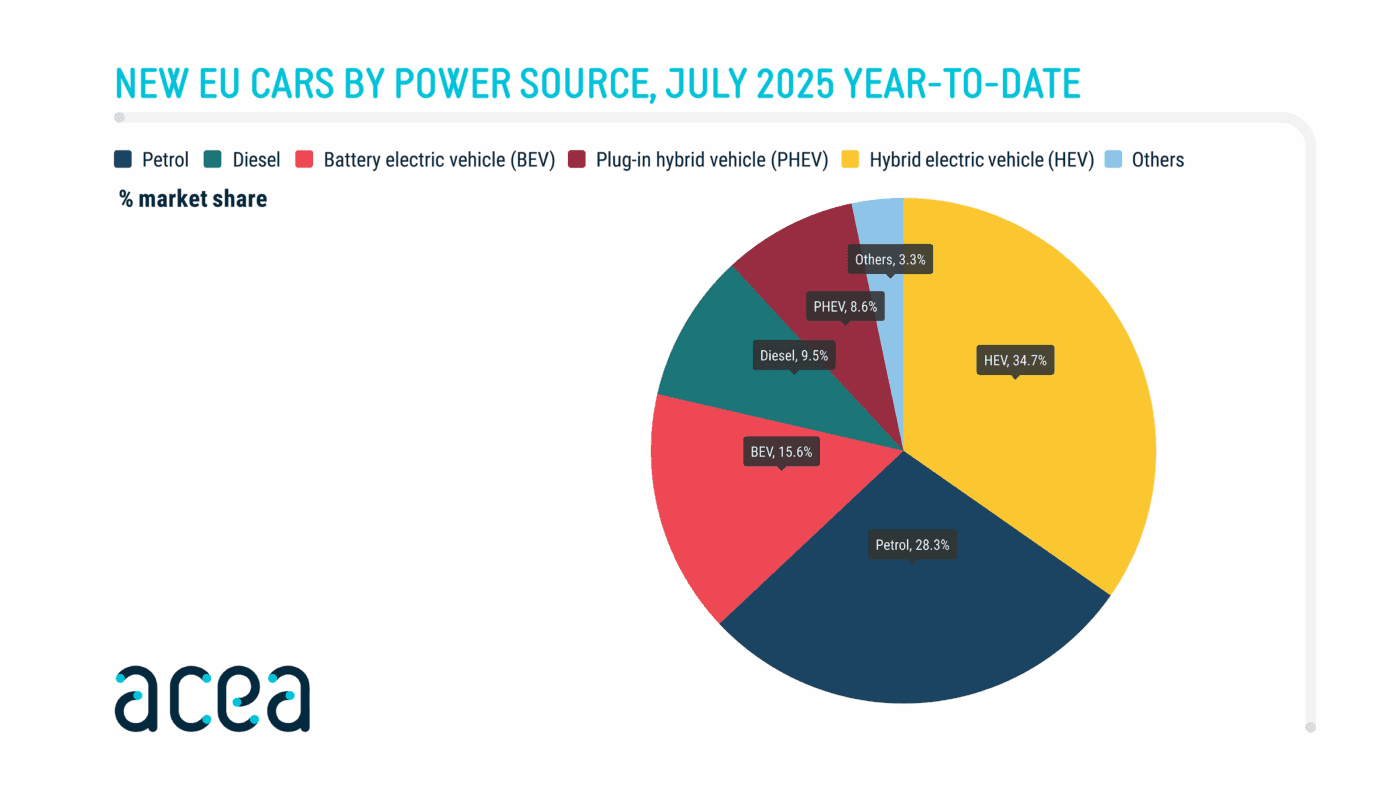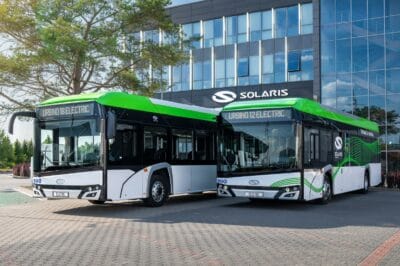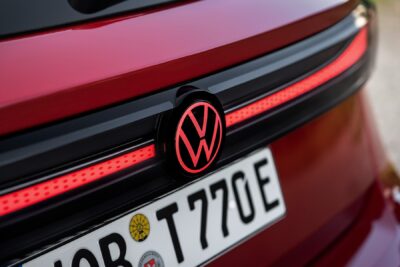Europe hits over one million new electric cars in 2025
Not only did electric cars account for 15.6 per cent of new registrations in the EU in the current year, but this figure was also achieved in July. This represents a noticeable increase from the 12.5 per cent market share of the previous year. In July 2024, the share of electric cars in the EU was only 12.1 per cent – at that time, electric cars were still behind diesel (12.8 per cent). That has now changed, with pure diesel cars accounting for only 9.5 per cent in the current year, compared to a full ten per cent in July.
The ACEA is using the publication of the registration statistics to make a political statement: the 15.6 per cent market share of electric cars is “still far from where it needs to be at this point in the transition,” according to the association. Just this week, ACEA President and Mercedes CEO Ola Källenius, together with the supplier association CLEPA, wrote a letter to EU Commission President Ursula von der Leyen, arguing for a softening of CO2 targets, as the current targets (with new registrations from 2035 only for cars with zero grams of CO2) “simply no longer feasible.”

In its statement on registration statistics, the association emphasises that hybrid cars remain the preferred choice of EU consumers with a share of 34.7 per cent. Since last summer, hybrids have overtaken pure petrol cars at the top of the rankings; however, many car manufacturers often only offer hybridised combustion engines in new model series, which is why the share is likely to increase further in the future. Meanwhile, the combined market share of petrol and diesel vehicles fell from 47.9 per cent in the same period in 2024 to 37.7 per cent.
Back to electric cars: three of the four largest markets in the EU, which account for over 60 per cent of battery-powered electric car registrations, recorded growth. Germany is up 38.4 per cent for the year, Belgium is still up 17.6 per cent, and the Netherlands is up 6.5 per cent. Although France recorded an increase of 14.8 per cent in July, new electric vehicle registrations fell by 4.3 per cent for the year as a whole. Incidentally, new BEV registrations across Europe (EU+EFTA+UK) reached a share of 17.2 per cent.
Registrations of plug-in hybrids totalled 561,190 units in the period from January to July 2025. According to the ACEA, this is attributable to volume growth in key markets such as Spain (+94.5%) and Germany (+59.2%), but also Italy (+60.3%). Plug-in hybrid electric cars now account for 8.6 per cent of EU passenger car registrations (previously 6.9 per cent).
While the total number of electric cars is primarily relevant for the climate, the distribution among manufacturers is also important for the economy. The ICCT has published current statistics on this, looking at the CO2 pools of manufacturers. The BMW pool (consisting of BMW and Mini) leads the way with 26 per cent and is also the only pool that already meets the average CO2 targets for 2025-2027.
This is followed by the Mercedes-Volvo-Polestar pool with a 22 per cent share of electric cars, ahead of Kia (19 per cent), Hyundai (19 per cent) and Volkswagen (18 per cent). Manufacturers with BEV registration shares below the European average were SAIC (14 per cent), the Tesla-Stellantis-Toyota pool (12 per cent), the Renault pool (12 per cent) and Nissan (6 per cent).
However, it is not the electric car shares that are relevant here, but the combined CO2 emissions of all drive types. As mentioned above, only BMW has managed to achieve its individual target thus far. Mercedes-Volvo-Polestar and Kia are only slightly above their targets, while the other pools are significantly above – even Volkswagen still has room for improvement here. Nissan still needs to improve by more than 30 grams of CO2 per kilometre, as the company is currently furthest from its target.
This article was first published by Sebastian Schaal for electrive’s German edition.





1 Comment